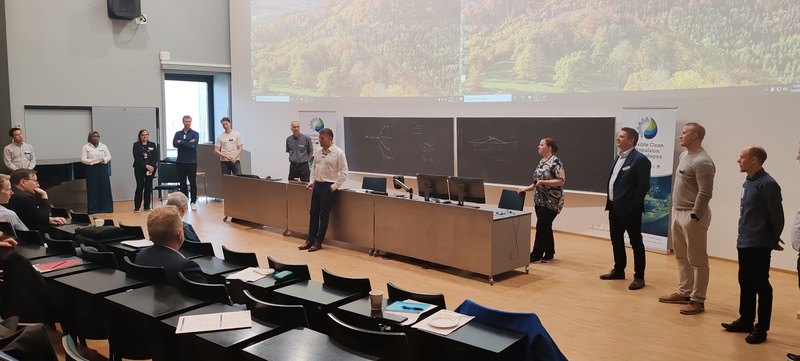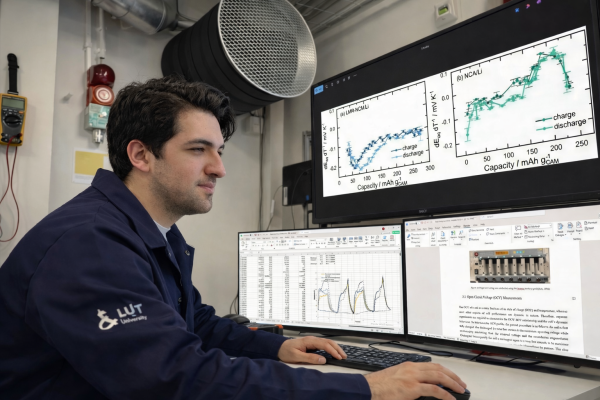The Flexible Clean Propulsion Technologies (Flex-CPT) project held its 1st Review Meeting at Aalto University’s campus, bringing together over 70 representatives from industry, academia, and research organizations. The meeting served as a pivotal moment in the project’s trajectory, offering a comprehensive review of its scientific progress and reinforcing its strategic commitment to collaborative innovation.
The event was opened by Professor Maciej Mikulski, Project Leader and Head of the Energy Technology Department at the University of Vaasa. In his keynote remarks, he addressed the project’s overarching vision “To secure an economically stable, zero-emission business for the Finnish powertrain industry by jointly addressing the immense complexity of a fuel-diversified future.”
He emphasized the importance of system-level thinking and multi-fuel compatibility, and he encouraged attendees to contribute actively to the refinement of the project roadmap through knowledge exchange and technical dialogue.
Professor Ossi Kaario of Aalto University welcomed participants with opening remarks that framed the strategic significance of the event and underscored the importance of academia–industry collaboration in accelerating clean propulsion technologies. This led into a series of insightful presentations from key industrial partners including Neste, Lumikko, and Proventia. These plenary contributions explored current developments in marine and off-road propulsion, thermal management challenges, and the future of emission control technologies. These keynote contributions provided a critical frame of reference for the technical and collaborative sessions that followed.
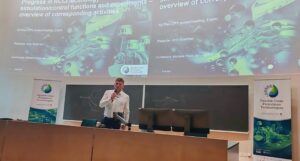
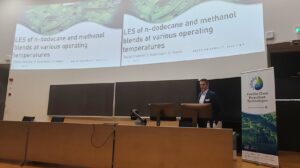
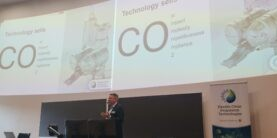
Over two focused days, the consortium convened four core technical sessions, each reflecting a critical dimension of the Flex-CPT research agenda. The first session addressed rapid prototyping and thermal management, showcasing advancements in model-based system optimization and innovative battery cooling techniques. The second session explored fuel storage, injection, and combustion fundamentals, including cryogenic tank modeling and combustion behavior of diesel-alcohol blends. Hydrogen and dual-fuel engine concepts formed the focus of the third session, with results shared on hydrogen-diesel operation, spark ignition testing, and in-cylinder pressure estimation methods. The final session examined emission control strategies, highlighting work on urea deposit characterization, SCR control, and integrated engine–catalyst experiments. Together, these sessions demonstrated the consortium’s commitment to combining experimental insight with practical solutions to meet the complexity of a multi-fuel future.
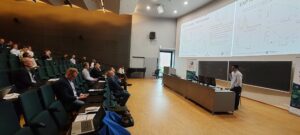
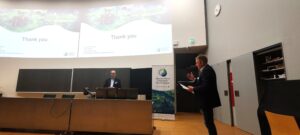
In parallel, two dedicated workshops examined the sector-specific implications of Flex-CPT’s research. The Marine Track, coordinated by Wärtsilä, VTT, Meyer Turku, and the University of Vaasa, explored hybrid propulsion pathways and decarbonization strategies for maritime contexts. The Off-Road Track, led by AGCO Power Oy in collaboration with Aalto University and VTT, focused on fuel versatility, modular control systems, and integration architectures for non-road machinery.
A particularly engaging moment emerged during the closing session, where both the Marine and Off-Road workshop groups reconvened to share their insights and outcomes with the full assembly. In an atmosphere charged with enthusiasm and intellectual exchange, representatives from each track presented synthesized findings, practical recommendations, and forward-looking reflections. The session not only highlighted the technical depth explored during the workshops but also revealed unexpected alignments between sectors—underscoring the shared challenges and synergies in navigating multi-fuel complexity. The lively group presentations sparked spontaneous discussion among participants and brought renewed energy to the project’s collaborative spirit, reaffirming the value of Flex-CPT’s cross-sector approach to innovation.
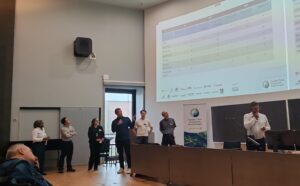
The event concluded with laboratory tours of Aalto University and VTT facilities, offering participants a firsthand view of the experimental platforms supporting Flex-CPT’s research. These included Aalto’s Engine Lab and Renewable Energy Learning Laboratory, as well as VTT’s Hydrogen Facilities and Powertrain Laboratories.
In his closing remarks, Professor Mikulski reflected on the broader mission of the consortium, emphasizing that Flex-CPT is not only solving technical challenges, but also building a unified national response to a global transformation. By collaboratively managing the complexity of fuel-diversified propulsion, the project is helping secure Finland’s leadership in sustainable powertrain solutions.
The Flex-CPT consortium will continue to advance its research agenda over the coming months, with its focus firmly on enabling a zero-emission, economically sustainable future for the transport sector.
